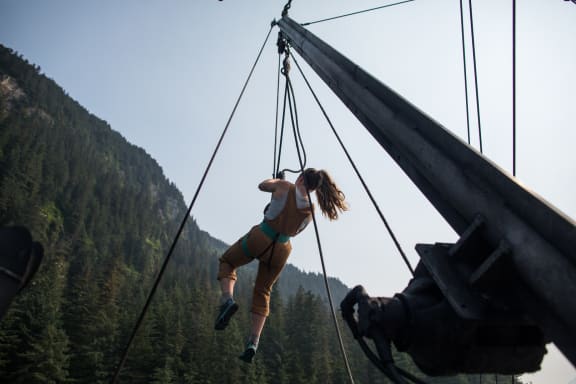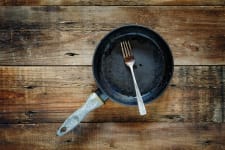
Cleaning Up Land and Sea through Climate Leadership
March 14th, 2022An Homage to Four Trailblazers This Women's History Month
This Women's History Month, Wild Alaskan Company would like to highlight the contributions of four women who have dedicated their livelihoods to addressing the climate crisis. Despite working in industries where women are underrepresented, these trailblazers are cleaning up the land and sea through their innovation and expertise. Directly and indirectly, we are indebted to leaders like them in our mission to accelerate humanity's transition to sustainable food systems.
Janice Lao
Janice Lao is an environmental scientist, development economist, sustainability activist, and author. She has been fighting for sustainability at the global level for over 20 years and in 2018 was named one of the world’s most influential sustainability leaders by Forbes Magazine.
Her work in sustainability began in STEM, where she graduated at top of her class at the University of Oxford. From there, she started her tremendous career at the World Resources Institute, where she helped embed sustainability milestones in project financing. She's also co-developed mathematical and economic models to offset carbon for the aviation industry and pioneered sustainability initiatives for carbon trading, biodiversity, responsible seafood sourcing, and single-use plastics.
Lao's breadth of work is extraordinary, and accomplishing so much hasn't been easy for her. In an article for Women in Science, she wrote about how her race, gender, and age were barriers towards success. "The reality for me has been that I have to work 200 times more than my peers because of the racial, gender, and age stereotypes that exist for a person like me," she said. "But it is also a learning opportunity for me — I’ve learned that I am much stronger, much more persevering and resilient than I thought I could be.”
She is also an author who wants to reach the next generation through her work. In 2020, she co-authored Sparky & Benny’s Big Home Mystery, a children's book that addresses climate change from the perspective of kid whales, with her 11-year-old daughter. And in 2021, Lao published yet another work with her 9-year-old son Issac, Penguins Can Fly, Right?, which delves into the themes of science, failure, and finding your gifts in life.
Isatou Ceesay
Isatou Ceesay is a lover of nature with an entrepreneurial spirit. After being forced to drop out of school at a young age, Ceesay took it upon herself to take action to further the cause that meant the most to her: saving the planet. She worked for the U.S. Peace Corps office in The Gambia and has also worked as a consultant for various developmental organizations.
Poverty is ubiquitous for many people in The Gambia. Without adequate resources, waste management systems are nonexistent — there is no garbage collection service and no site for compost. Without a system in place, people are left to leave trash piled in the streets, which introduce disease and danger into their communities.
Ceesay had once heard about a butcher who had been opening dying goats only to find plastics obstructing their stomachs. It was when she heard about the goats that she committed to fixing this pollution problem. Her solution? One Plastic Bag, an organization that takes non-reusable plastic bags and recycles them into purses. What originally started as a small meeting group between a handful of friends blossomed into a massive organization that directly impacts the way the world views plastic recycling.
To this day, One Plastic Bag continues to save livestock, prevent disease outbreaks, and foster healthy soil for agricultural purposes. Her journey has even been turned into a picture book, One Plastic Bag, by children's book author Miranda Paul.
The impact of Ceesay’s idea has grown far beyond her original goal. Thanks to the flow of income from the One Plastic Bag project, Ceesay was able to create the Women’s Initiative Gambia (WIG), which provides classes and business opportunities to women and girls throughout nation, many of whom could not read or write when Ceesay first created One Plastic Bag.
Vandana Shiva
Vandana Shiva is an ecologist, activist, and author. She is the founder of Navdanya, an organization that supports biodiversity conservation and farmers’ rights.
The word “navdanya” means “nine seeds” in Hindi. The organization is as whole as the grains it defends, describing itself as is an Earth-centric, Women-centric, and Farmer-led organization with a mission is to protect biological and cultural diversity. Based in India, it has now expanded across 22 states in the country as a primary conservator of climate-resilient food, thanks to the 150+ community seed banks that have risen since Navdanya’s creation.
Along with her work for Navdanya, Shiva is also the founder of the Research Foundation for Science, Technology, and Natural Resource Policy, where she fights for change in the practice of agricultural and food programs. She has been described as one of the most important climate heroes of our age by Time, Asia Week, the Guardian, and Forbes.
Alexandra Morton
Alexandra Morton is a field biologist-turned-activist whose groundbreaking research in the field of aquaculture has impacted the way the world views fish farming — primarily salmon farming on the coast of British Columbia.
Morton started her career in marine research, studying the communications between bottlenose dolphins and analyzing the sounds of captive orcas at Marineland of the Pacific in California. Years later, she moved to the remote coast of British Columbia where she studied the language and culture of wild orca clans. Later, her interests shifted as she began the long fight to protect wild salmon on the coast. She is now considered one of the pioneers of scientific research about the impact of salmon farming on wild salmon species.
Her work is revolutionary and has been disseminated widely: she has co-authored over twenty scientific papers on the impact of salmon farming on migratory salmon, has been featured on 60 Minutes, and even found time to found Salmon Coast Research Station, a non-profit organization that studies coastal research in British Columbia. She's also the co-founder of the Broughton Archipelago Stewardship Alliance, whose mission is to hire and educate locals so that they can access, monitor, and restore salmon-bearing creeks in their communities. In 2010, Morton started the Salmon Are Sacred Movement to further increase awareness of the negative impacts salmon farms have on the environment and health.





